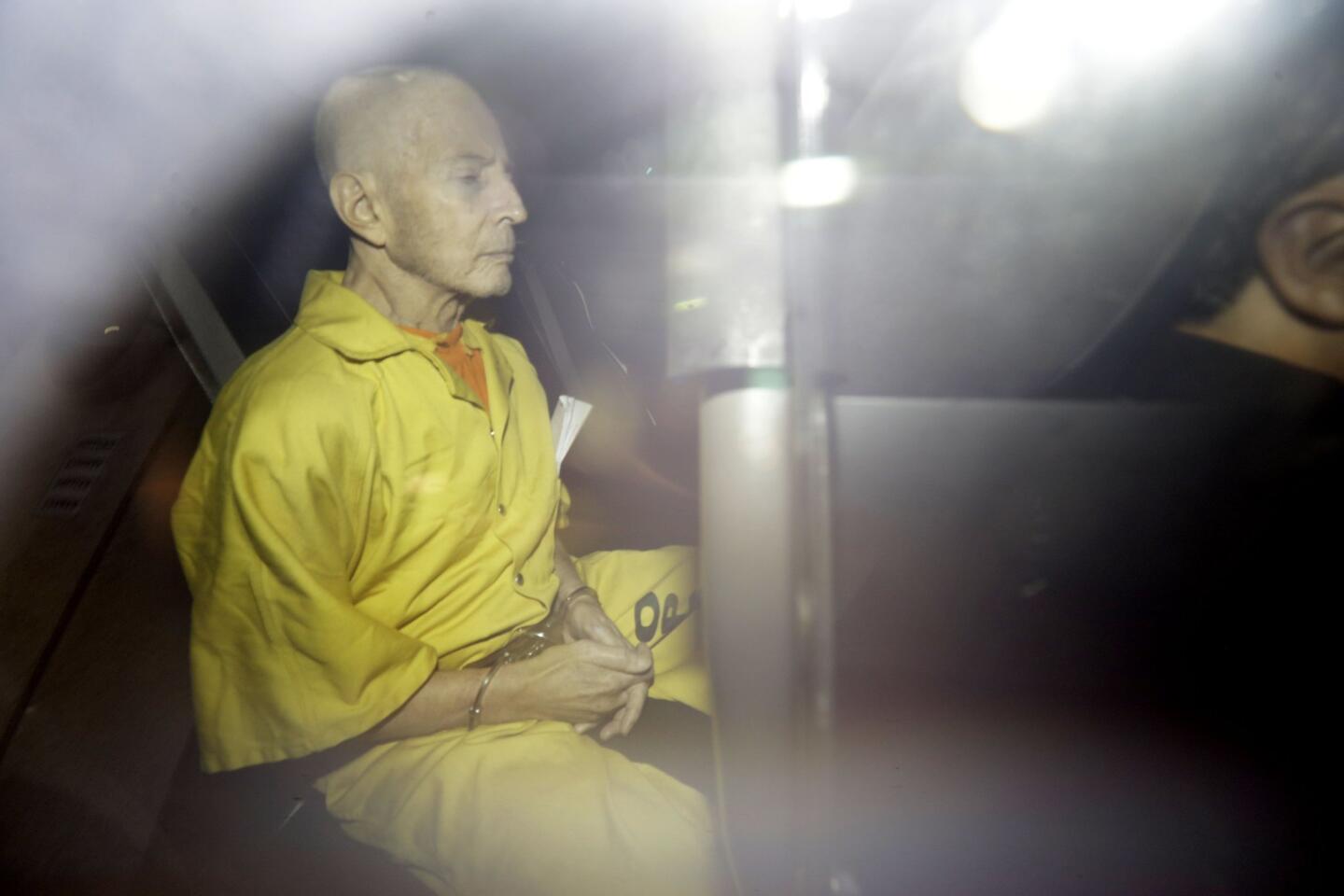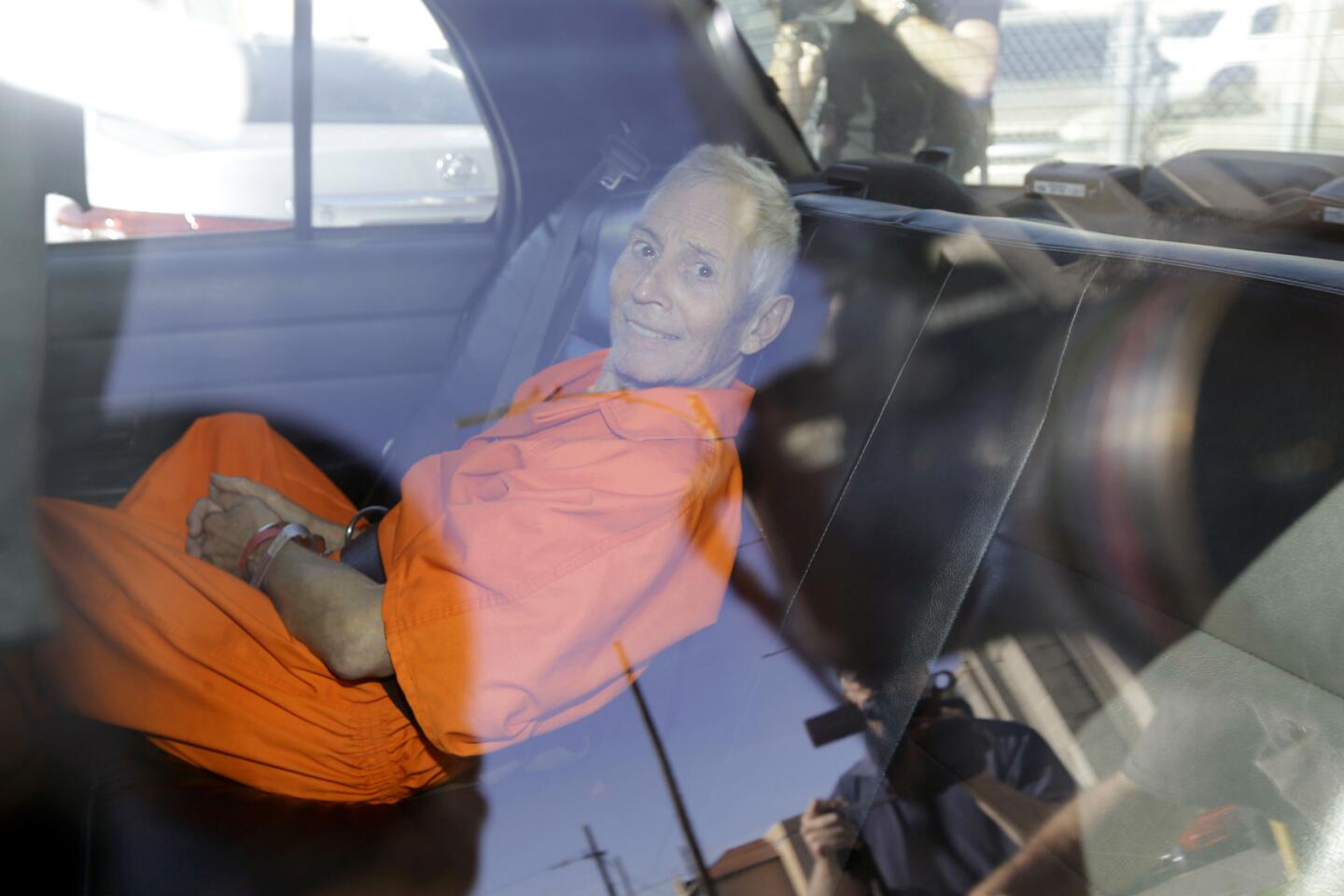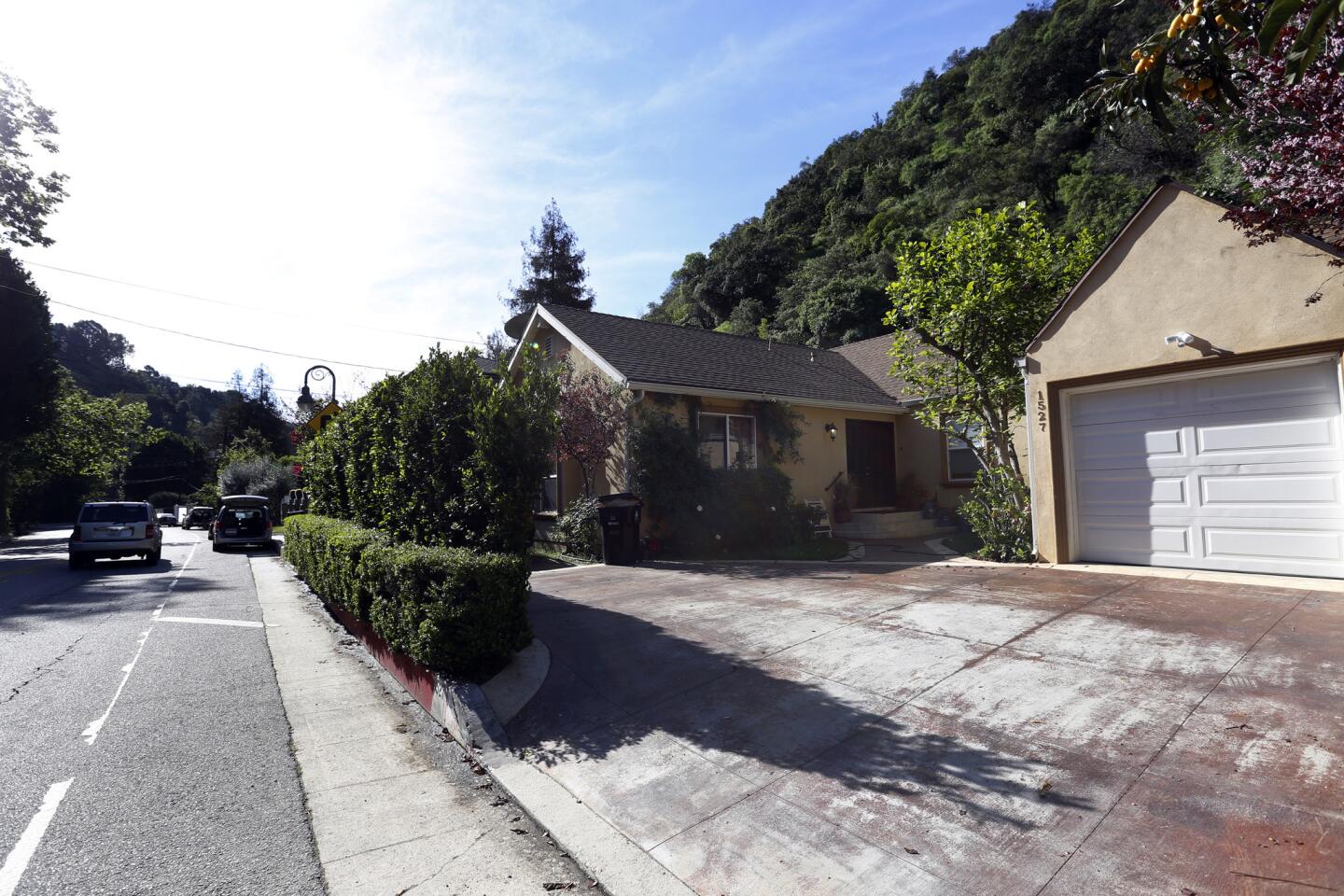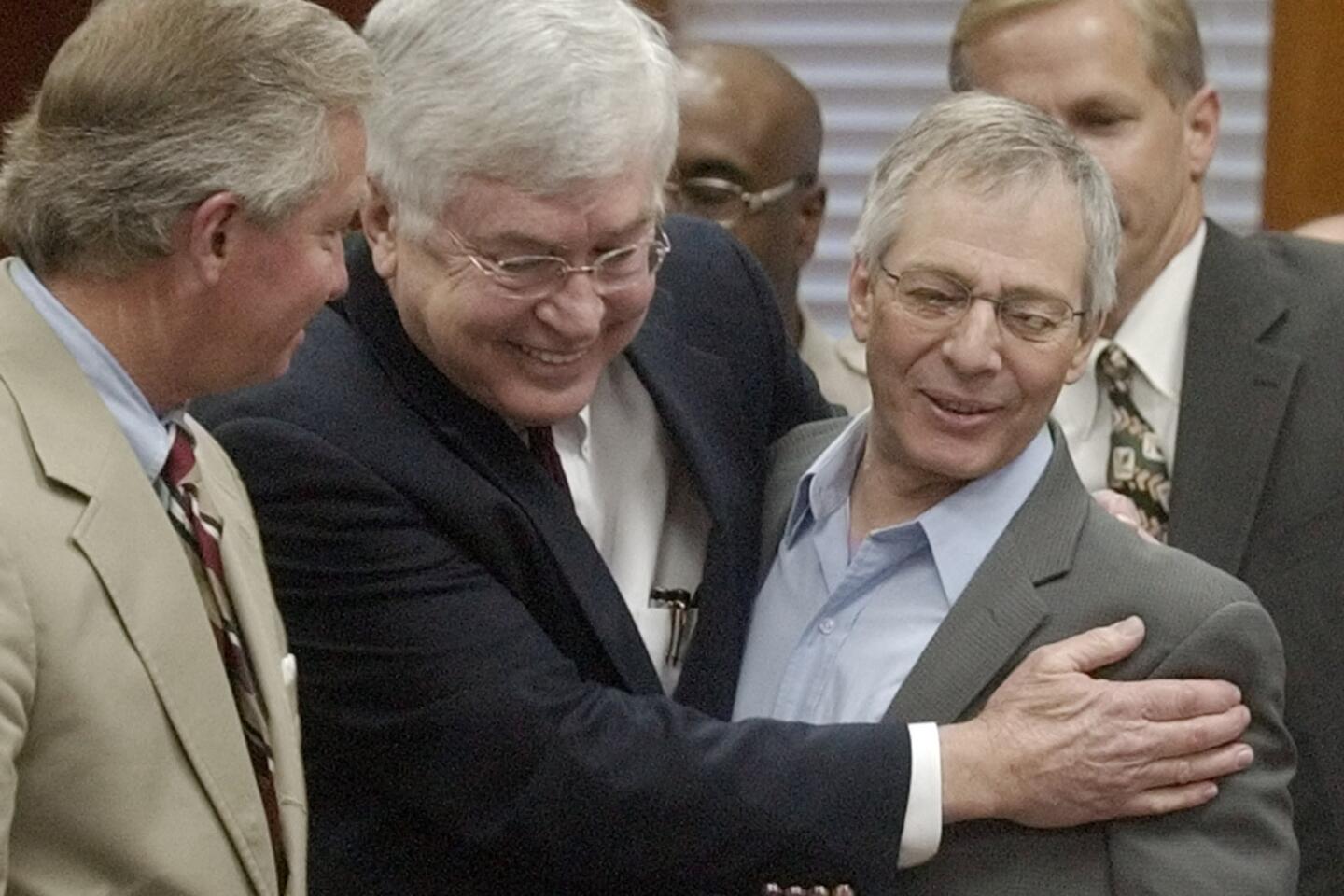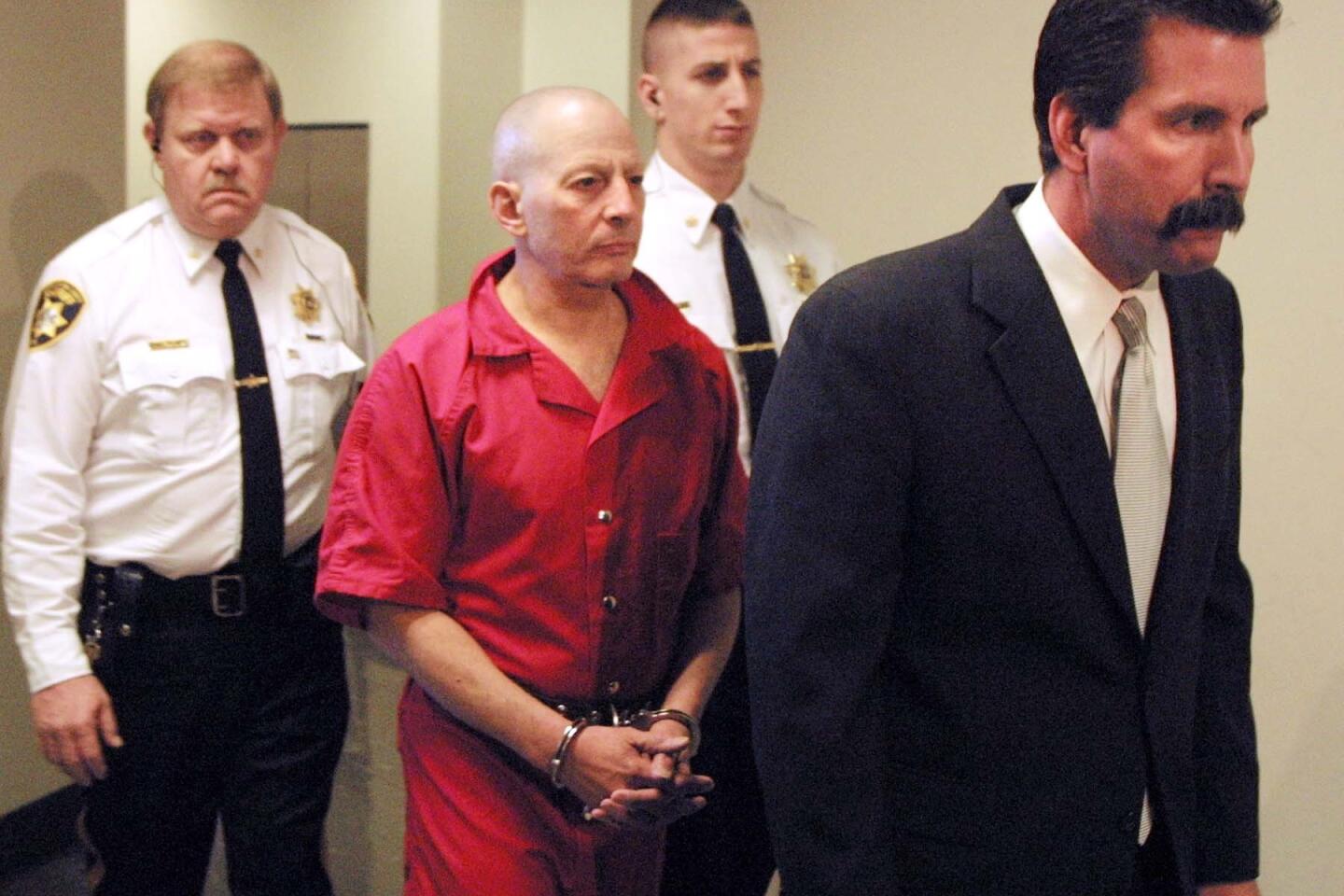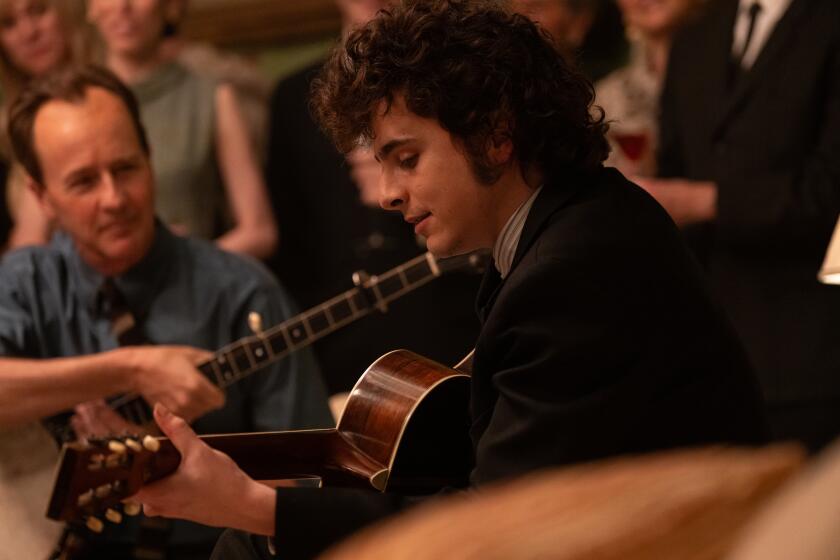Is ‘The Jinx’ a threat to traditional feature documentaries?
- Share via
Of the many angles to Andrew Jarecki’s “The Jinx” that have been remarked upon over the past few days, one that’s slipped by relatively unnoticed is the format--specifically, the serialized one.
This is at heart a documentary, that most venerable of feature types. And Jarecki is, of course, a noted doc feature filmmaker, having made the hit “Capturing the Friedmans” a little more than a decade ago.
In fact, Jarecki initially thought “Jinx” would be a feature doc too, until he decided to go in a serial direction. As he explained to my colleague Meredith Blake:
“We started, we had this 4 1/2-hour thing and it was clear that it wasn’t finished. At a certain point during the day we’re all talking about how we just watched ‘Homeland’ or we just saw ‘House of Cards’ or we just watched the original ‘House of Cards’ or ‘The Wire’ and everybody in the edit room is obsessed with these serialized stories,” he said. “We’re living in a binge watching universe where people are watching 10 episodes at a time of things. Why don’t we accept where we are in the universe. Let’s abandon the idea that this has to be a feature length film.”
And so it has found life as a six-hour television series--on HBO’s vaunted Sunday night schedule no less, in the same slot that had us watching the scripted crime drama of “True Detective” a year ago. What might in another era have well been a traditional doc is now coming in a newer and modern form.
Serial has become the buzzword for documentaries. Nonfiction filmmakers now increasingly believe that the feature (and the theatrical release window it was tailored for) is a thing of the past. We live in an age of binge watching and episodic content, so why shouldn’t doc films follow the trend?
The rise of docs on television and digital platforms, and our commensurate need to gobble up large slabs of content, means that docs now increasingly can and will live as longform pieces. As Thom Powers, doc overseer for Toronto and a host of other film festivals, said in an interview for a story about the true crime doc in today’s Times: “Every meeting I have these days, it’s not very long before someone brings up the idea serial.” He said he’s considering programming serialized content at his fests. (“Jinx,” in fact, premiered at Sundance.)
Serialized docs actually pose a challenge at a festival, because programmers don’t have five- or six-hour slots to spare, and distributors don’t want them to give away the whole shebang in any event. Still, they’ve taken note of the trend and are seeking ways to make room for it.
The hunger for serial solves a problem doc filmmakers have long faced. Backers can be stingy, reluctant to support movies of greater length (they are, after all, more expensive), forcing filmmakers to cut out essential material.
Plus for many viewiers it’s a refreshing change to see serialized content gain traction in an attention span-starved world. Pieces like “The Jinx” (and precursors like “The Staircase”) would be a lot less interesting if they were jammed down to fit into a feature compartment. Stories like that need room to breathe, time to wend this way and that, with perhaps even a little cliffhanger or two thrown in.
But serial isn’t a magic bullet. In fact, it can sometimes just be a regular bullet. True crime of the twisty-turny sort—“The Jinx,” “Serial”—works in this format. Policy docs don’t. Did you want six hours of “Blackfish?” How about ”Food, Inc.”? And personality-driven tales don’t lend themselves to this much either. “20 Feet from Stardom” was really fun over about 100 minutes, but I don’t know if I need to see new chapters over a month and a half. Four more hours of Snowden in the hotel room wouldn’t have made “Citizenfour” any better either. It probably would have made it worse.
Jarecki’s abandonment of the feature form of course isn’t entirely the act of self-sacrifice he describes—most directors want more hours to tell their stories, whether or not those stories merit that time. The fact that doc filmmakers now can do more is welcome, but that doesn’t mean they always need to do more. Sometimes there’s value in telling a story neatly, compactly, with excess weight shed.
It’s likely there will be a mix of feature and serialized docs in the years ahead. There’s room for both. Let’s just hope the right subjects are matched with the right format. Too much expansion of a short story can be just as painful as too much compression of a long one.
Twitter: @ZeitchikLAT
More to Read
Only good movies
Get the Indie Focus newsletter, Mark Olsen's weekly guide to the world of cinema.
You may occasionally receive promotional content from the Los Angeles Times.
